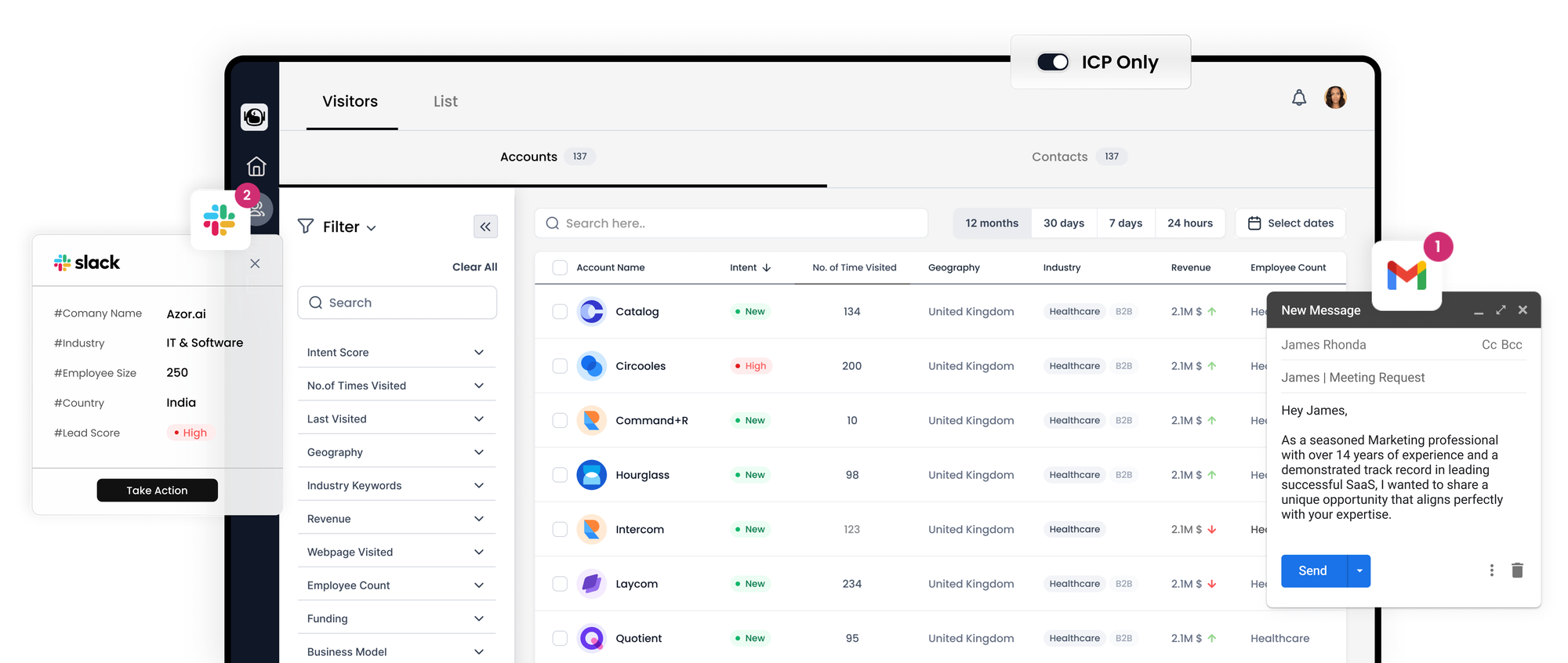Foundations of B2B Marketing

B2B, or business-to-business, pertains to transactions where companies engage with each other, rather than with individual consumers. This can occur in several scenarios:
- A company sourcing raw materials for production, like a fashion brand buying fabric.
- A business requiring another's services to operate, like a tech firm hiring an accounting company for tax services.
- A business purchasing products to resell, like an agency offering a white-labeled software solution to its clients.
For B2B companies, an effective marketing strategy is as crucial as it is for B2C firms.

Understanding B2B Marketing
B2B marketing targets the needs, interests, and challenges of individuals who are making purchases on behalf of, or for, their organization (rather than for themselves), making the business customer unique from the individual consumer.
Such businesses might include non-consumer-facing companies that require certain goods, services, or information to operate—like raw materials for their manufacturing process, specialized services like payroll management, or digital tools and platforms for business operations.
Defining B2B Marketing
B2B marketing refers to practices and techniques for a company to reach, communicate, and offer its products or services to other businesses. What differentiates B2B from B2C marketing is the transactional process, which involves multiple decision-makers and a more complex buying cycle.
B2B marketing must address the specifics of business clients, who act with a different set of criteria than individual consumers. Decisions are made with logic, often involving a group's consensus and considering the ROI for the business.
Divergence Between B2B and B2C Marketing
B2B marketing diverges from B2C in several key ways:
- The target audience is significantly narrower and requires highly targeted marketing efforts.
- Professional relationships have potential longevity and need ongoing nurturing post-purchase.
- B2B customers make more informed, rational purchasing decisions and often involve several stakeholders.
- Personal relationships and tailored account management are more pivotal in B2B scenarios.
B2B Market Dynamics and Examples
The B2B market is characterized by economic diversity, with a few key accounts often generating a large percentage of revenues. Decision-making units are complex and multifaceted, with various stakeholders having distinct priorities. This leads to longer decision cycles and intricate pricing and discount structures.
Emerging B2B Marketing Trends
Recent advancements have revolutionized B2B marketing, with a shift towards more personalized, data-driven strategies:
- Account-based marketing targets specific high-value accounts with personalized campaigns.
- Big data and AI refine customer relationship management, tailoring communication to buyer behavior and preferences.
Implementing Contemporary B2B Marketing
Modern B2B marketing requires a blend of traditional and innovative strategies to meet the evolving landscape. By leveraging data and technology, marketers can create personalized experiences that resonate with their business audience. The challenge lies in aligning marketing tactics with the intricate dynamics of the B2B buying process, ensuring content and outreach are relevant and compelling for the business customer.
Contemporary B2B Marketing Approaches
Modern B2B marketing strategies are diverse, incorporating both traditional and digital methods. Here's an exploration of various techniques that can fortify your B2B marketing plan:
Mobile-First Approach
The rise of mobile technology has transformed the B2B landscape. A mobile-first strategy ensures that all digital assets are optimized for mobile use, offering a seamless experience for buyers on-the-go. This includes a responsive website design and possibly a mobile application. The ultimate goal is a robust mobile presence that facilitates direct access to your brand’s information.
Account-Based Marketing (ABM)
ABM is a highly targeted marketing strategy that treats each account as a market of one. It's a personalized approach that tailors communication to individual prospects or customer accounts, nurturing them with content across all their active channels, thereby enhancing conversion rates.
Customer-Centric Content Marketing
Gone are the days when B2B content was dry and feature-focused. Today, it's about storytelling—creating a narrative that positions your products within real-life industry contexts. Engaging video content and search-optimized articles are key tools in convincing B2B buyers of your solutions.
Data-Driven Marketing
Leveraging big data transforms marketing from an art to a science. By analyzing behavioral patterns from social media, search history, CRM, and more, marketers can paint a detailed picture of their target audience, allowing for highly tailored and efficient campaigns.
AI-Driven CRM
Artificial Intelligence (AI) is revolutionizing CRM systems by predicting user needs and delivering data precisely when it’s most valuable. For B2B marketers, this means prioritizing prospects based on likelihood to convert, anticipating customer issues, and managing inventory through intelligent forecasts.
Augmented and Virtual Reality (AR & VR)
AR and VR are reshaping how B2B products and services are presented. These technologies enable immersive demonstrations, like virtual tours of facilities or augmented overlays of products in real-world settings, providing a more engaging buyer experience.
B2B Influencer Marketing
In the B2B sector, influencers are thought leaders who can sway industry trends and buyer decisions. Partnering with these influencers can humanize your brand and capitalize on their trusted relationships with followers for enhanced brand credibility and engagement.
The Evolution of B2B Marketing
The landscape of B2B marketing is continually evolving. Social media platforms have paved the way for interactive engagement, allowing for direct and managed dialogues with buyers. With advancements in data analytics and technology, B2B marketers now have the means to make more informed and strategic decisions about who to target and how to engage them effectively. These modern B2B marketing techniques are not just about broadcasting a message but about starting a conversation and building relationships that are rooted in value and trust.
